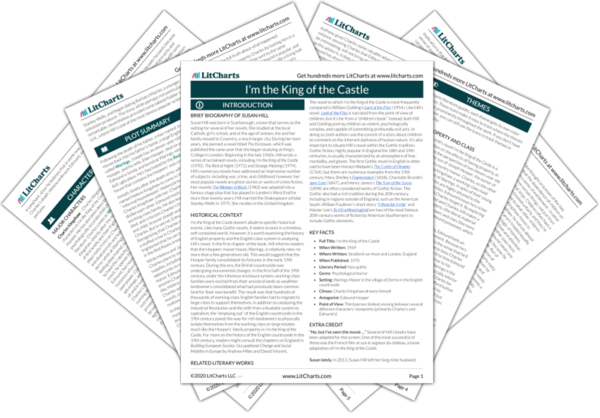Edmund’s parting words to Charles suggest that Charles is trying to go somewhere—and, most likely, he plans to run away from home, since that’s something he has tried to do previously. The fact that Edmund plans to follow Charles wherever he goes further emphasizes the point that Edmund, contrary to what he has said in the past, wants to be around Charles—even is the purpose is so that he can bully Charles. The distinction between Edmund’s desire for companionship and his desire to torture Charles seems not to exist.
